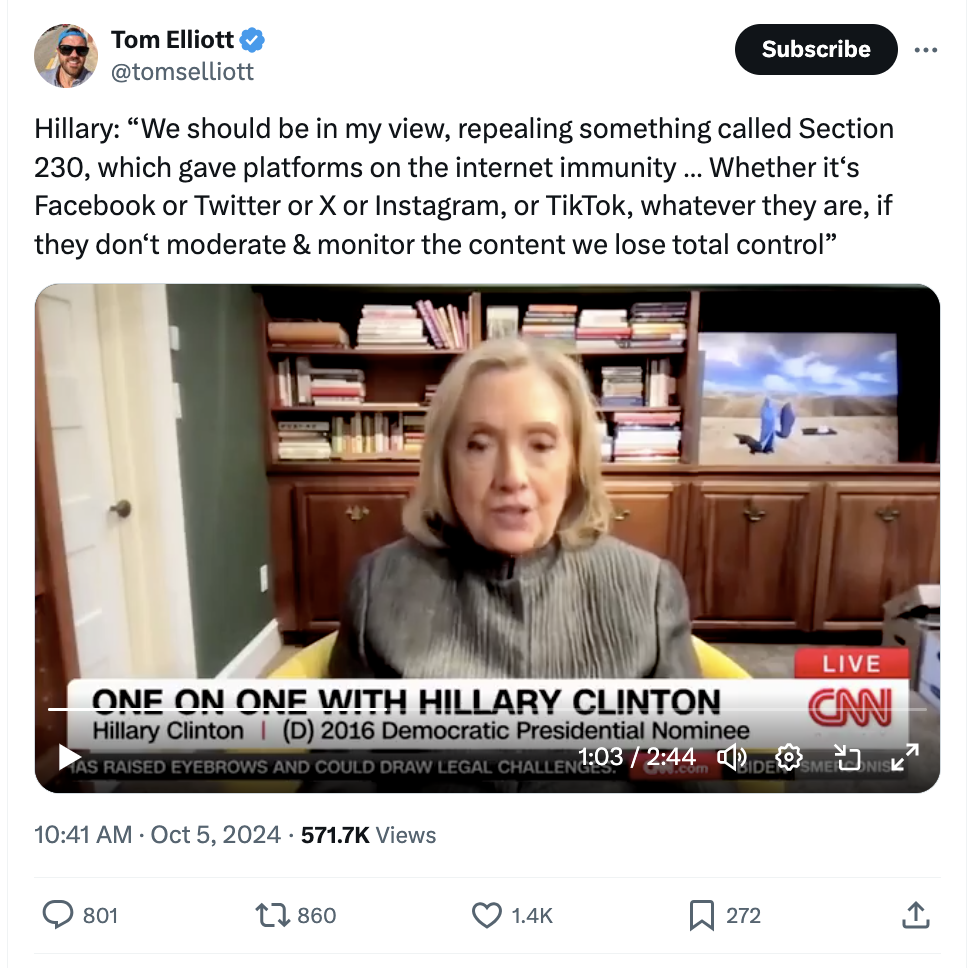Matt Taibbi gave an extraordinary speech in DC this weekend. I invite everyone to watch his speech or read the transcript.

One of Matt's many quotable lines: "[The use of propaganda is] always someone trying to make you feel bad for their weakness, their mistakes. Don’t be ground down by it. Stand up straight and give it back."
I agree with every word of Tabbi's challenge. We need to speak up often and this includes repeatedly saying "no" to government overreach. When something big monied organizations tell us doesn't make sense, we need to stand up and say so, even when people (including friends and family) tell us we are bad for refusing to belief. Recently, Elites, including John Kerry and Bill Gates have disparaged our founding documents, the ones we purportedly celebrate on Fourth of July. They are now saying out loud that the First Amendment is a problem, rather than a brilliant proven solution to government overreach.
This tyranny and censorship we are facing are invisible to those who lap up their "news" from corporate media. "X" (Twitter) is where you need to go to get better information and alternate perspectives. It's far from perfect because X is a huge tent filled with many types of people, many of them severely wacky. X is also one of the few places where you can find thoughtful people freely conversing with each other, freely challenging the narrative that your government is spending untold millions of $ trying to force-feed you every day. Your own government thinks you aren't smart enough to think for yourself. It's minions talk down to you. They want to be your nanny. They want you get get in line and stop asking questions. They want you to shut the fuck up, even though they got almost EVERYTHING wrong about COVID. You'd think that they would instill some humility, but these are high paid elites who treasure their job security as much as they their conviction that they are so much god-damned smarter than the rest of us. They are close to having the power to intellectually blind and gag us on a scale that would have been unimaginable pre-internet. Truly, we need to stand up every day and say no to this.
Here's a longer excerpt from Taibbi's speech:
Let me pause to say something about America’s current intellectual class, from which the “anti-disinformation” complex comes. By the way: there are no working-class censors, poor censors, hungry censors. The dirty secret of “content moderation” everywhere is that it’s a tiny sliver of the educated rich correcting everyone else. It’s telling people what fork to use, but you can get a degree in it.
America has the most useless aristocrats in history. Even the French dandies marched to the razor by the Jacobins were towering specimens of humanity compared to the Michael Haydens, John Brennans, James Clappers, Mike McFauls and Rick Stengels who make up America’s self-appointed behavior police.
In prerevolutionary France even the most drunken, depraved, debauched libertine had to be prepared to back up an insolent act with a sword duel to the death. Our aristocrats pee themselves at the sight of mean tweets. They have no honor, no belief, no poetry, art, or humor, no patriotism, no loyalty, no dreams, and no accomplishments. They’re simultaneously illiterate and pretentious, which is very hard to pull off.
They have one idea, not even an idea but a sensation: fear. Rightly so, because they snitch each other out at the drop of a hat; they’re afraid of each other, but they’re also terrified of everyone outside their social set and live in near-constant fear of being caught having an original opinion. They believe in the manner of herd animals, who also live whole lives without knowing an anxiety-free minute: they believe things with blinding zeal until 51% change their minds, and then like deer the rest bolt in that direction. We saw that with the Biden is sharp as a tack/No, Biden must step aside for the Politics of Joy switch.
I grew up a liberal Democrat and can’t remember having even most of the same beliefs as my friends. Now, millions of alleged intellectuals claim identical beliefs about vast ranges of issues and this ludicrous mass delusion is the precondition for “disinformation studies,” really the highly unscientific science of punishing deviation from the uniform belief set — what another excommunicated liberal, my friend Thomas Frank, calls the “Utopia of Scolding.”
“Freedom of speech” is a beautiful phrase, strong, optimistic. It has a ring to it. But it’s being replaced in the discourse by “disinformation” and “misinformation,” words that aren’t beautiful but full of the small, pettifogging, bureaucratic anxiety of a familiar American villain: the busybody, the prohibitionist, the Nosey Parker, the snoop.
H.L. Mencken defined Puritanism as the “haunting fear that someone, somewhere is happy.” That streak of our early European settlers unfortunately survives in us and keeps surfacing through moral panics. Four hundred years ago it was witches, then it was Catholic immigrants, then “the devil’s music,” comic books, booze, communists, and now, information.
Because “freedom of speech” is now frequently described as a stalking horse for hate and discrimination — the UN High Commissioner Volker Türk scolded Elon Musk that “free speech is not a free pass” — it’s becoming one of those soon-to-be-extinct terms. Speech is mentioned in “reputable” media only as a possible vector for the informational disease known as misinformation. Soon all that will remain of the issue for most people is a flutter of the nerves, reminding them to avoid thinking about it.
The end game is not controlling speech. They’re already doing that. The endgame is getting us to forget we ever had anything to say . . .


